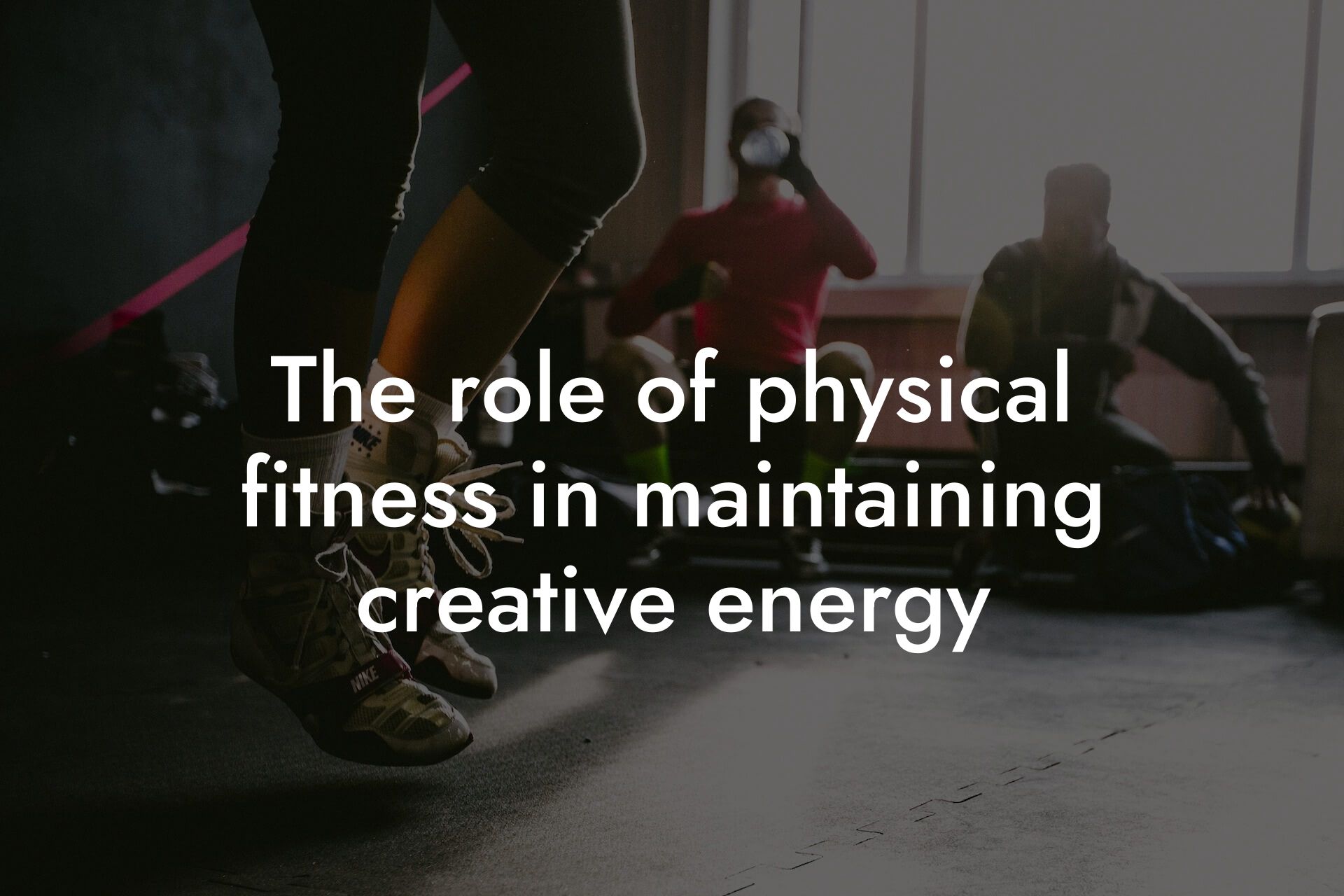As a creative professional, you understand the importance of maintaining a healthy and fit physique. Whether you're a model, actor, dancer, or influencer, your body is your instrument, and taking care of it is crucial for success in your industry. One of the most effective ways to do this is by incorporating DEXA scans into your health and wellness routine. In this article, we'll explore the benefits of DEXA scans for creative professionals and how they can help you take your career to the next level.
Table of Contents
What is a DEXA Scan?
A DEXA (Dual-Energy X-ray Absorptiometry) scan is a non-invasive, pain-free medical imaging test that measures bone density, body composition, and fat distribution. It's commonly used to diagnose osteoporosis, but its applications extend far beyond that. A DEXA scan can provide a comprehensive picture of your overall health, including your muscle mass, bone density, and body fat percentage.
Why Do Creative Professionals Need DEXA Scans?
Creative professionals face unique physical demands that can take a toll on their bodies. Dancers, for example, are at risk of developing osteoporosis due to repetitive impact and stress on their joints. Models and actors may struggle with body dysmorphic disorders, which can lead to unhealthy dieting and exercise habits. A DEXA scan can help identify potential health risks and provide valuable insights for making informed decisions about your health and wellness.
Benefits of DEXA Scans for Creative Professionals
DEXA scans offer a range of benefits for creative professionals, including:
- Accurate body fat percentage measurement: Unlike traditional methods like BMI or skinfold measurements, DEXA scans provide an accurate measurement of body fat percentage, helping you track your progress and make data-driven decisions about your diet and exercise routine.
- Identification of muscle imbalances: DEXA scans can help identify muscle imbalances and weaknesses, allowing you to target specific areas for improvement and reduce the risk of injury.
- Bone density analysis: A DEXA scan can detect early signs of osteoporosis, allowing you to take proactive steps to maintain strong bones and prevent fractures.
- Personalized nutrition and training plans: With a DEXA scan, you can create a personalized nutrition and training plan tailored to your specific needs and goals, helping you achieve optimal physical performance.
How DEXA Scans Can Improve Performance
By providing a detailed picture of your body composition and bone density, DEXA scans can help you optimize your performance in several ways:
- Increase strength and power: By identifying areas of muscle weakness, you can target specific exercises to improve strength and power, leading to enhanced performance.
- Enhance endurance: A DEXA scan can help you optimize your body fat percentage, allowing you to perform at a higher intensity for longer periods.
- Reduce injury risk: By identifying potential health risks and imbalances, you can take proactive steps to prevent injuries and maintain a healthy, injury-free body.
What to Expect During a DEXA Scan
A DEXA scan is a quick, painless procedure that typically takes around 10-15 minutes to complete. You'll lie down on a table, and a technician will position the DEXA scanner above your body. The scanner will then emit a low-level X-ray beam, which will be absorbed by your body in varying degrees depending on your bone density and body composition.
Interpreting DEXA Scan Results
After the scan, a technician will analyze the results and provide you with a detailed report, including:
- Bone density scores: Your bone density will be compared to that of a healthy adult, and you'll receive a score indicating your risk of osteoporosis.
- Body fat percentage: Your body fat percentage will be calculated, providing valuable insights into your overall health and fitness.
- Lean mass and fat mass distribution: You'll receive a detailed breakdown of your lean mass (muscle) and fat mass distribution, helping you identify areas for improvement.
As a creative professional, taking care of your physical health is crucial for success in your industry. A DEXA scan can provide valuable insights into your body composition, bone density, and overall health, helping you optimize your performance and achieve your goals. By incorporating DEXA scans into your health and wellness routine, you can gain a competitive edge, reduce the risk of injury, and maintain a healthy, fit physique. At Tano Performance Group, we're dedicated to helping high-earning professionals like you achieve optimal physical performance. Contact us today to learn more about our DEXA scan services and take the first step towards unlocking your full potential.
Frequently Asked Questions
What is a DEXA scan, and how does it work?
A DEXA (Dual-Energy X-ray Absorptiometry) scan is a non-invasive medical test that measures bone density, body composition, and fat mass. It uses low-level X-rays to produce images of the inside of the body, which are then analyzed to provide detailed information about bone density, lean mass, and body fat percentage. The scan is quick, taking around 10-15 minutes, and is typically performed on the spine, hips, and whole body.
What are the benefits of DEXA scans for creative professionals?
As a creative professional, you understand the importance of maintaining a healthy and fit physique. DEXA scans provide valuable insights into your body composition, allowing you to optimize your diet, exercise, and lifestyle to achieve your goals. By tracking changes in bone density, body fat percentage, and lean mass, you can make data-driven decisions to improve your overall health and performance.
How accurate are DEXA scans?
DEXA scans are highly accurate, with a precision error of around 1-2%. This means that the results are reliable and can be used to track changes in your body composition over time. The scans are also standardized, ensuring that the results are consistent across different machines and operators.
Is a DEXA scan safe?
Yes, DEXA scans are extremely safe. They use very low levels of X-ray radiation, which is significantly lower than a typical chest X-ray. The scan is also non-invasive, meaning you won't need to undergo any surgical procedures or insert any instruments into your body.
How often should I get a DEXA scan?
The frequency of DEXA scans depends on your individual goals and needs. If you're looking to track changes in your body composition, we recommend getting a scan every 3-6 months. However, if you're simply looking to establish a baseline measurement, a single scan may be sufficient.
What is the difference between a DEXA scan and a body fat caliper measurement?
A body fat caliper measurement is a manual method of estimating body fat percentage by pinching the skin at specific points on the body. While this method can provide a rough estimate of body fat percentage, it is less accurate than a DEXA scan. DEXA scans provide a more detailed and precise measurement of body composition, including bone density, lean mass, and fat mass.
Can I get a DEXA scan if I'm pregnant or breastfeeding?
We recommend avoiding DEXA scans during pregnancy or breastfeeding, as the X-ray radiation may pose a risk to the developing fetus or baby. However, it's essential to consult with your healthcare provider or a qualified medical professional to discuss any concerns or questions you may have.
How long does it take to get the results of a DEXA scan?
The results of a DEXA scan are typically available within 24-48 hours. Our team of experts will analyze the data and provide you with a comprehensive report outlining your body composition, bone density, and other key metrics.
What do the results of a DEXA scan look like?
The results of a DEXA scan are presented in a detailed report that includes graphs, charts, and numerical values. The report will provide information on your bone density, body fat percentage, lean mass, and other key metrics. Our team will also provide personalized recommendations and guidance to help you interpret the results and achieve your goals.
Can I use a DEXA scan to track my progress over time?
Absolutely! DEXA scans are an excellent tool for tracking changes in your body composition over time. By comparing the results of multiple scans, you can see how your diet, exercise, and lifestyle changes are impacting your body. This information can be used to refine your approach and make data-driven decisions to optimize your results.
How does a DEXA scan measure bone density?
A DEXA scan measures bone density by using low-level X-rays to produce images of the inside of the body. The scan measures the absorption of X-rays by the bones, which is directly related to bone density. The results are then compared to a reference database to determine your bone density score.
What is the T-score, and what does it mean?
The T-score is a measure of bone density that compares your results to a reference database of healthy young adults. A T-score of -1 or higher indicates normal bone density, while a score of -1 to -2.5 indicates osteopenia (low bone density). A score of -2.5 or lower indicates osteoporosis (severe bone loss).
What is the Z-score, and what does it mean?
The Z-score is a measure of bone density that compares your results to a reference database of individuals of the same age, sex, and ethnicity. A Z-score of 0 indicates average bone density for your age group, while a score above or below 0 indicates higher or lower bone density, respectively.
Can a DEXA scan detect other health conditions?
While a DEXA scan is primarily used to measure bone density and body composition, it can also detect other health conditions, such as vertebral fractures, osteoporosis, and sarcopenia (age-related muscle loss). However, a DEXA scan is not a substitute for a comprehensive medical evaluation or diagnosis.
How does a DEXA scan differ from a DXA scan?
A DEXA scan and a DXA scan are essentially the same thing. The terms "DEXA" and "DXA" are often used interchangeably, and both refer to a Dual-Energy X-ray Absorptiometry scan.
Can I get a DEXA scan if I have metal implants or pacemakers?
Yes, you can still get a DEXA scan if you have metal implants or pacemakers. However, it's essential to inform the technician or medical professional performing the scan about any implants or devices you have, as they may affect the accuracy of the results.
How does a DEXA scan help with weight loss?
A DEXA scan provides valuable insights into your body composition, allowing you to identify areas where you need to focus your weight loss efforts. By tracking changes in your body fat percentage, lean mass, and bone density, you can refine your diet and exercise approach to achieve sustainable weight loss results.
Can a DEXA scan help with athletic performance?
Absolutely! A DEXA scan can help athletes optimize their body composition to improve performance. By identifying areas of excess body fat or lean mass, athletes can tailor their training and nutrition to achieve a competitive edge.
How does a DEXA scan help with body recomposition?
A DEXA scan is an essential tool for body recomposition, as it provides a detailed breakdown of your body composition. By tracking changes in your body fat percentage, lean mass, and bone density, you can make data-driven decisions to optimize your diet, exercise, and lifestyle to achieve your body recomposition goals.
Can I get a DEXA scan if I'm under 18 years old?
We recommend that individuals under 18 years old consult with their healthcare provider or a qualified medical professional before undergoing a DEXA scan. While DEXA scans are safe, they may not be suitable for growing children or adolescents, as their bodies are still developing.
How much does a DEXA scan cost?
The cost of a DEXA scan varies depending on the location, provider, and other factors. At Tano Performance Group, we offer competitive pricing for our DEXA scan services. Please contact us for more information or to schedule an appointment.
Is a DEXA scan covered by insurance?
Insurance coverage for DEXA scans varies depending on your provider and policy. Some insurance plans may cover DEXA scans for specific medical conditions, such as osteoporosis or bone loss. We recommend checking with your insurance provider to determine if they cover DEXA scans.
Here are some related articles you might love...
- Managing stress through physical fitness in creative roles
- Quick workouts for artists during creative blocks
- The role of physical fitness in maintaining creative energy
- Nutrition strategies for fueling creative work
- How artists can stay fit during long studio sessions
- Balancing artistic work with personal fitness goals
- How to maintain bone density in sedentary artistic jobs
- The impact of body composition on creative performance
- The connection between physical health and creative output
Zak Faulkner
Zak Faulkner is a leading authority in the realm of physical health and body composition analysis, with over 15 years of experience helping professionals optimise their fitness and well-being. As one the experts behind Tano Performance Group, Zak has dedicated his career to providing in-depth, science-backed insights that empower clients to elevate their physical performance and overall health.
With extensive knowledge of DEXA technology, Zak specializes in delivering comprehensive body assessments that offer precise data on body fat, muscle mass, bone density, and overall physique. His expertise enables individuals to make informed decisions and achieve their fitness goals with accuracy and confidence. Zak’s approach is rooted in a deep understanding of human physiology, combined with a passion for helping clients unlock their full potential through personalised strategies.
Over the years, Zak has earned a reputation for his commitment to excellence, precision, and client-focused service. His guidance is trusted by top professionals who demand the best when it comes to their health. Whether advising on fitness programs, nutritional strategies, or long-term wellness plans, Zak Faulkner’s insights are a valuable resource for anyone serious about taking their health and fitness to the next level.
At Tano Performance Group, Zak continues to lead our Content Team revolutionising how professionals approach their physical health, offering unparalleled expertise that drives real results.




